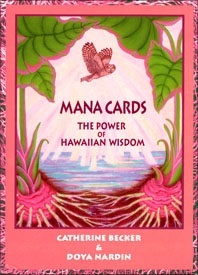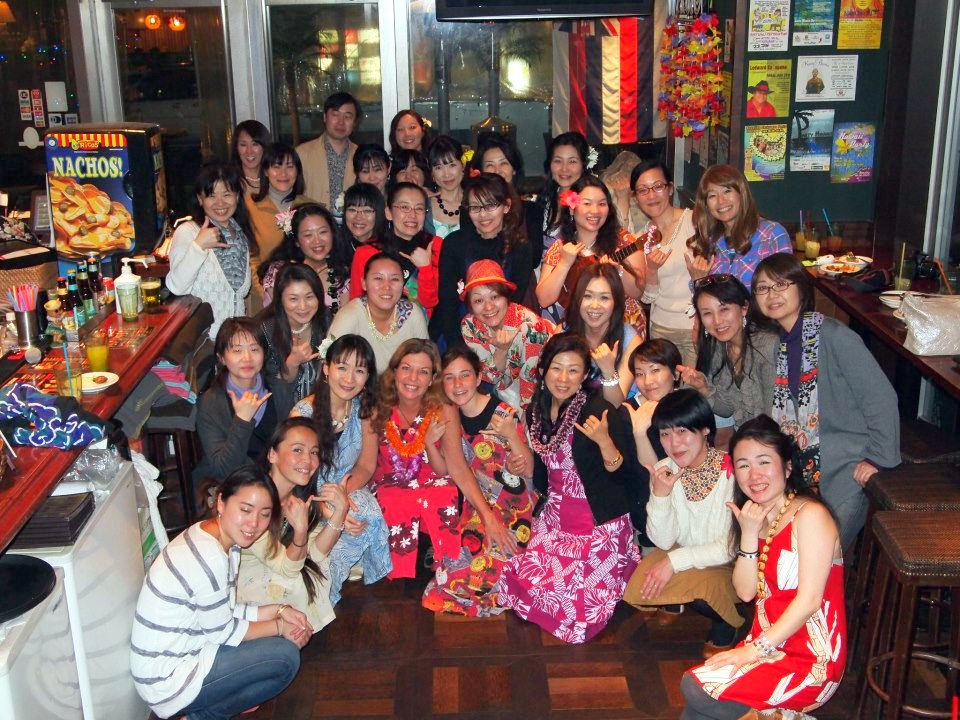Associate Professor Becker examines the ways communication contributes to the transformation of organizational, cultural, or family systems. She was the first in academia to test Cultural Convergence Theory in Japan.
Catherine Becker is an associate professor of communication at the University of Hawai‘i at Hilo. Her research examines the ways that communication contributes to the transformation of individuals and systems, for example, organizational, cultural, or family systems. She explores the ways communication is linked to transformation using quantitative, qualitative, and creative approaches.
“My research has the potential to transform the field of communication because it crosses methodological and disciplinary lines, it forges connections that didn’t exist previously,” she explains. “It offers alternative approaches, ways of knowing, and teaching. I use new forms of ethnography and alternative forms of representation to encourage new paradigms, perspectives, and possibilities.”
Becker was the first person to test Cultural Convergence Theory in Japan. Looking at groups outside the United States, specifically in Japan, Becker predicted that the more members of different cultural groups communicate, the more similar they become, She says this is important because the U.S. has policies that encourage cultural assimilation where as Japan’s policies tend to discourage it.
 “While I was collecting data in Japan, I found answers to the open-ended questions in my survey offered insight to the Brazilian immigrant experience in Japan in a way that quantitative data could not,” she says. “Consequently, I became interested in qualitative methods such as ethnography and narrative analysis.”
“While I was collecting data in Japan, I found answers to the open-ended questions in my survey offered insight to the Brazilian immigrant experience in Japan in a way that quantitative data could not,” she says. “Consequently, I became interested in qualitative methods such as ethnography and narrative analysis.”
Becker is known for her creative approaches to exploring communication and transformation. She encourages conversations among people who don’t usually speak to one another about topics they may be reluctant to discuss but that need to be addressed. She says when people are encouraged to listen to the stories of others and share their own, there is an opportunity for dialogue, healing, and transformation.
“This is critical if we are going to be sustainable,” she says. “It facilitates engagement with cultural narratives.”
Mana Cards
Her book, Mana Cards: The Power of Hawaiian Wisdom, has been translated into several languages generating interest in and respect for Hawaiian culture among people who might not learn about it otherwise. As a result of the book, she was invited to conduct a series of interviews with Hawaiian healers for the Japanese Magazine, Hula Lea, providing a channel for Japanese people to learn more about these practices and what they offer. The interviews provided the basis for questions for a funded study of the communication practices of holistic healers on Hawai‘i Island that was published in Communication and Medicine. Students from all over Japan convened with Associate Professor Becker in Tokyo in the spring of 2013 to learn how Mana Cards: The Power of Hawaiian Wisdom can foster communication and transformation.
Students from all over Japan convened with Associate Professor Becker in Tokyo in the spring of 2013 to learn how Mana Cards: The Power of Hawaiian Wisdom can foster communication and transformation.
Puna Lava Flow
Becker is in the process of “birthing” another book that documents discourse regarding the impact of lava flows in the region of Lower Puna on Hawai‘i Island.
“My daughter attended elementary and middle schools in Puna and we have lived there, so we have many close connections in the community,” she explains. “I also have a long standing passion for Pele and her stories. So I have been following the situation very closely.”
For this project, she has conducted a preliminary content analysis of the discussions on several social networking sites that address the threat and has found extremely different interpretations of what it means and how to manage the situation. She will serve as editor on the book that she says will provide a forum for people to share and discuss these various perspectives. She says she hopes the book, with the working title, Views of Pele: Collisions, Collaboration, and Community, will attract authors that represent the wide variety of perspectives regarding the meaning of the lava flow and how to address the inevitable changes it is bringing to the island.
“In addition to alternative transportation, energy, housing and food, sustainability is also about social justice,” she says. “The book will provide a venue that encourages dialogue and communication about these issues.”
The call for submissions for the book is on Becker’s Facebook page called Pele and the Puna Lava Flow: Collisions, Collaboration, and Community. The site has evolved into a source of information for the community.
Her story
On an even more personal note, Becker is in the final stages of editing an autoethnography, The Mother Road: A Black Market Baby, A Motorcycle, A Search for Real Across Un-United States, which begins with her discovery that she was a black market adoptee and tells the story of a 9,000-mile motorcycle trip that she took around the U.S. when she was 19 searching for her roots.
“The work blends narrative, popular culture, and academic perspectives to provide a setting for exploring how adoption, culture, class, gender, genealogy, and identity shapes lives,” she says.
Becker says the most surprising find in her research and scholarly activity is the transformative potential of narrative.
“I have collected examples from Hawaiian culture, holistic healers, physicians, engineering students, surfers, people from Fukushima and Pāhoa and am continually awed by the power of stories to effect the person sharing the story as well as the listeners-readers-participants,” she says.
Education
Becker earned a Doctorate of Philosophy in Communication from State University of New York at Buffalo. She also earned Master of Arts in American studies from UH Mānoa, a Master of Arts in Communication from S.U.N.Y Buffalo, and a B.S. in Liberal Studies from Buffalo State College.
Source: https://hilo.hawaii.edu/keaohou/2014/10/17/becker-communication
< BACK